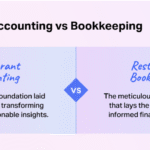As sustainability becomes a priority for consumers and businesses alike, entrepreneurs are finding innovative ways to make their operations more eco-friendly. Greener practices not only help the environment but can also enhance your brand’s reputation and cut long-term costs.
By integrating sustainability into your business model, you can meet the growing demand for responsible practices while setting yourself apart in a competitive market.
Harnessing the Power of Renewable Energy
One of the most impactful ways to embrace sustainability is by incorporating renewable energy into your operations. Solar panels are an excellent choice for businesses looking to reduce their carbon footprint and save on energy costs.
Solar technology has improved considerably over recent years, and solar panels are now more affordable and more effective at generating electricity. By installing them, you can generate clean, renewable power for your office, warehouse, or retail space.
Many governments and local authorities offer tax incentives or grants for businesses that adopt solar power, making it a cost-effective investment. Additionally, showcasing your commitment to renewable energy can attract eco-conscious customers and partners.
Reducing Waste with Smarter Choices
Waste management is a crucial area where businesses can make significant environmental improvements. One way to get started is to conduct a waste audit to identify areas where materials are being wasted or sent to landfills unnecessarily.
You could also switch to recycled or biodegradable packaging for your products, and consider offering digital receipts instead of paper ones. Encouraging customers to return or recycle used items can also help reduce waste while fostering customer loyalty.
Green Transportation Options
For businesses that rely on shipping or deliveries, rethinking transportation can lead to greener operations. Electric or hybrid vehicles are becoming more accessible and can significantly cut emissions compared to traditional options.
Additionally, optimizing delivery routes with technology reduces fuel consumption and increases efficiency. If you rely on third-party logistics, prioritize companies with sustainable transportation practices to align with your values.
Sustainable Sourcing and Materials
Reviewing your supply chain is another critical step in greening your business. Partner with suppliers who prioritize ethical and sustainable practices, such as using renewable resources or minimizing their environmental impact.
Switching to eco-friendly materials for your products not only helps the planet but also appeals to a growing market of environmentally conscious consumers. Transparency is key—share your sourcing practices to build trust and loyalty.
Energy Efficiency in Everyday Operations
Energy efficiency can help to make a significant difference in reducing a business’s carbon footprint. Simple steps like switching to LED lighting, installing motion sensors, and using energy-efficient appliances can reduce energy consumption.
Encourage employees to adopt sustainable habits, such as shutting down computers after work and unplugging unused devices. Implementing a smart thermostat can optimize heating and cooling, further cutting energy use and costs.
Building a Culture of Sustainability
Sustainability works best when it’s a collective effort. Engage your team by promoting eco-friendly practices in the workplace, such as recycling programs, carpooling, or remote work options.
Host workshops or training sessions to educate employees about the importance of sustainability and how they can contribute. Recognize and reward initiatives that support your company’s green goals to keep motivation high.
Why Sustainability Pays Off
Integrating sustainable practices into your business is not just about environmental responsibility—it’s a smart business move. Companies that prioritize sustainability often see increased customer loyalty, cost savings, and improved employee morale.
By leading the charge toward greener operations, you position your business as a forward-thinking organization ready to meet the challenges of the future. Sustainability is not just a trend but a necessity for long-term success in today’s market.












